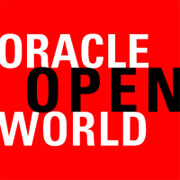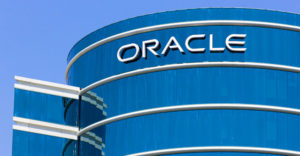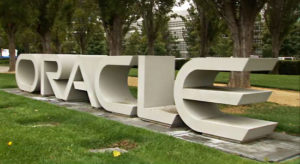
The Sunday keynotes at Oracle OpenWorld were good — especially when compared with prior years — but they still suffered from the perennial problem of trying to stuff too much content into a two-hour event.
Diane Bryant, SVP at Intel and a big Oracle partner, spent an hour covering a very broad landscape and she did it with verve.
There are so many intersection points between the companies that it’s hard to present a coherent story. There is the Xeon E5 v4 processor that outperforms previous versions — something you can expect from any Silicon Valley announcement — and there are memory chips that power things like the Oracle Sun Xadata machine, which can encrypt data to make it more resilient to hacking.
There was a lot more in the keynotes — and all of it important, but perhaps only for segments of the audience. For the rest of us, there was a gee-whiz quality to those announcements, but at least being wowed is entertaining.
Chips of the Future Now
Perhaps the most interesting information in Bryant’s presentation was that Intel was shipping a new line of chips that communicate not by moving electrons along predetermined paths but by using light emanating from incredibly small lasers that are manufactured on the same silicon substrate as conventional chips.
Light enables greater speeds, and these chips — classed as “photonics” — have a big job to play in the future for things like networking and communicating with peripherals. I know I am not doing justice to photonics, but the most amazing thing to come out of the discussion was that Intel already has begun shipping those products.
With this down payment, we can see the outlines of a future when computing is hundreds, if not thousands, of times faster than today’s state of the art — and who knows what that will mean in IT or the IoT? I am curious, for instance, if using light will generate less heat on chips and enable further component density.
Writing the Cloud Chapter
After that brain dump, Larry Ellison spoke in what can be termed only as brain dump No. 2. Larry also had a lot to talk about. After a really good earnings call last week — in which it was evident the company has turned a significant corner to become a bona fide cloud company — Ellison was in his element.
He sold the benefits of SaaS, PaaS and IaaS to the point of repeating last decade’s analogy about IT becoming a kind of utility, like water, gas and electricity. At least he was talking about the future and not denigrating cloud technology as he did before his conversion some years ago.
In truth, Ellison always has been a cloud guy. He owned a big chunk of NetSuite and was a member of the Salesforce board at the very beginning. When he was denigrating the cloud, he simply was selling what he had at a time when his customer base wasn’t ready to begin the herculean task of converting, whatever the benefits.
That’s different today with greater demands on IT and a new crop of younger leaders joining the ranks. Cloud is now cool.
The Right Direction
Still, cloud is not tomorrow for many businesses. Ellison’s presentation was loaded with statements that suggested the conversion could take a decade. That explains why, even as it pivots, the company is very careful to bring along legacy customers by offering Infrastructure as a Service that provides half-step measures to get customers acclimated to the cloud.
Another smart measure is the pending deal to acquire NetSuite — a cloud ERP vendor with a track record of working with legacy systems to deliver most of the benefits of cloud computing without clobbering the status quo.
Such dancing will be essential to Oracle’s continuing success, because as we saw at the earnings call, Oracle’s cloud business so far is coming much more from net new business and not from the installed base. Those customers still need convincing, and until then they need to make their current systems run well.
If the keynotes did a job, it was to set up the cloud-legacy dichotomy in a positive light, forecasting a bright future with a company and partners that are prepared to nudge customers in the right direction. We’ll see.
























































